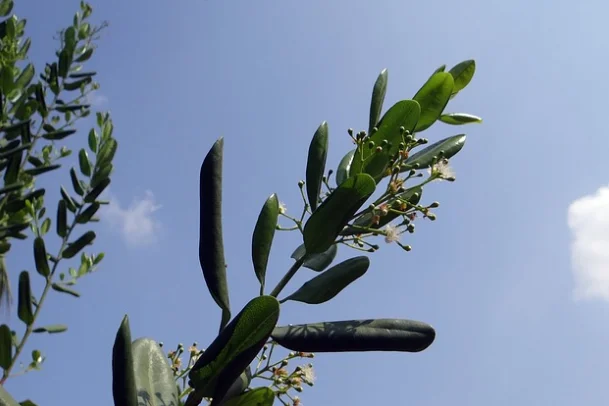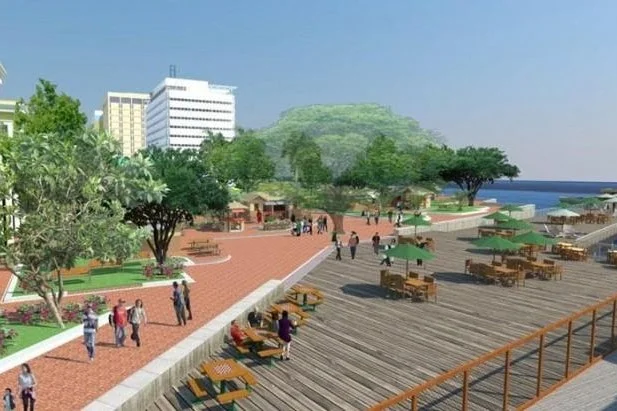SUSTAINABLE AGRICULTURE IN JAMAICA

Sustainable agriculture in Jamaica is a practice that the country is committed to improving. The country’s vulnerability to extreme weather emphasizes the importance of smart agricultural practices.
Long-Term Strategies
The Ministry of Agriculture and Fisheries has implemented strategies to ensure the sustainability of the agricultural sector. Portfolio Minister, Derrick Kellier, made a speech in preparation of the Vision 2030 Medium Term Policy. He said these strategies will contribute to the country’s GDP and fulfill the mission statement “to advance the development of a modern, efficient and internationally competitive agricultural sector, and the sustainable management of our fishery resources, in order to promote food security and food safety in an effort to contribute to the development and well-being of our people.”
The strategies include the:
- ablishment of nine agro-parks
- farm road rehabilitation plan through the sugar transformation program.
- implementation of an aquaculture development plan.
- completion of the European Union Banana Support Program.
- promotion and use of the farmer field school methodology in extension services.
- training in proper land husbandry techniques.
- building climate resilience of the agricultural sector through the provision of water harvesting and irrigation infrastructure.
The Jamaican Sustainable Farm Enterprise Program
Volunteers for Economic Growth Alliance (VEGA) established the Jamaican Sustainable Farm Enterprise Program to help the agriculture industry in Jamaica. The goal of the program is to assist the building of local, ecologically based, disaster resistant organic food systems through technology transfer and management expertise that links farmers to markets. Additionally, the initiative aims to develop market-driven organic value chain production, certification and distribution systems for agricultural products that will sustainably reduce food insecurity and poverty.
The program also assists smallholder farmers through technical training covering three areas:
- Improving agricultural and agribusiness operations, inputs, organic agricultural extension, marketing and innovative farm credit approaches.
- Supporting Jamaican local food security and resiliency projects by providing rural and urban educational programs and technical support in organic farming and gardening, community gardening and Permaculture land management practices.
- As the southeastern U.S. shares similar climate conditions with the Carribean, the program will source volunteers by tapping into these successful organic and Permaculture communities, fostering a strong cultural and economic links between these two regions. Indeed, the Caribbean is prone to disaster at a much more common rate because of its geographical location located in the harsh waters of the Atlantic Ocean. Over the past 60 years, the Caribbean countries have suffered over 180 natural disasters, primarily hurricanes and floods. Jamaica has one of the highest rates of hurricanes out of all of the Caribbean Islands, with over a 10 percent chance for a hurricane to strike annually.
Collaboration Fosters Growth
The vulnerability to natural disasters makes it crucial for farmers to be monitored and to work together. A program that has helped agriculture, as well as the safety of farming groups is the Jamaica Organic Agriculture Movement (JOAM). The initiative has untied 10 coffee farmers in Jamaica, with a combined land total of over 200 acres. The advantages of the program include joint marketing efforts, pooling resources and sharing solutions for agricultural production.
Sustainable agriculture in Jamaica has aided the industry of farming. Organizational efforts to improve the sector, despite the vulnerabilities the country faces, must continue in order for Jamaica to flourish.
 Albania
Albania Algeria
Algeria Andorra
Andorra Argentina
Argentina Armenia
Armenia Australia
Australia Austria
Austria Azerbaijan
Azerbaijan Bahrain
Bahrain Belgium
Belgium Bolivia
Bolivia Brazil
Brazil Bulgaria
Bulgaria Cambodia
Cambodia Cameroon
Cameroon Canada
Canada Chad
Chad Chile
Chile China
China Colombia
Colombia Costa Rica
Costa Rica Croatia
Croatia Cyprus
Cyprus Czechia
Czechia Denmark
Denmark Ecuador
Ecuador Egypt
Egypt Finland
Finland France
France Georgia
Georgia Germany
Germany Ghana
Ghana Greece
Greece Hungary
Hungary Iceland
Iceland India
India Indonesia
Indonesia Ireland
Ireland Italy
Italy Jamaica
Jamaica Japan
Japan Jordan
Jordan Kazakhstan
Kazakhstan Kenya
Kenya Kuwait
Kuwait Latvia
Latvia Lebanon
Lebanon Libya
Libya Lithuania
Lithuania Luxembourg
Luxembourg Malaysia
Malaysia Maldives
Maldives Mali
Mali Malta
Malta Mexico
Mexico Moldova
Moldova Monaco
Monaco Morocco
Morocco Netherlands
Netherlands New Zealand
New Zealand Nigeria
Nigeria North Macedonia
North Macedonia Norway
Norway Oman
Oman




